
Staying healthy as we age isn’t just about eating less — it’s about eating smart. Knowing the difference between fact and myth can help you feel energetic, support your body’s needs, and enjoy food without confusion or guilt. This short quiz will help you check what you know about food and aging — and give you science-based tips to make better choices.
Question 1
True or false: The older you get, the less likely you are to have a food intolerance.
✅ Answer: False
As we age, our bodies can become less tolerant of certain foods. Some people may notice new sensitivities, such as to dairy or spicy foods, over time.
Question 2
If you are sensitive to dairy, you can get calcium from:
a. whole grains and fiber
b. avocados, apples, and artichokes
c. spinach, white beans, sardines
d. olive oil, coconut oil, and other healthy fats
✅ Answer: C — spinach, white beans, and sardines
These foods are rich in calcium and can help support bone health if you avoid dairy. (You could also include salmon with bones or calcium-fortified plant-based milk.)
Question 3
What’s the best eating plan for older adults who want to maintain a healthy weight?
a. a high-protein, low-carbohydrate diet
b. a balanced diet such as the Mediterranean diet
c. a very low-calorie diet
d. a high-carbohydrate, low-fat diet
✅ Answer: B — a balanced diet such as the Mediterranean diet
Focus on moderation and variety: fill half your plate with vegetables, add whole grains, and include lean protein. Avoid heavily processed foods. Fruits, nuts, and healthy fats can also support energy and long-term health.
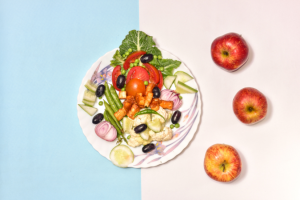
Question 4
Healthy fats, in moderation, can help your body:
a. absorbs vitamins and minerals
b. build muscle mass
c. stock up on vitamin C
d. improves blood sugar instantly
✅ Answer: A — absorb vitamins and minerals
Foods like nuts, seeds, and fatty fish provide healthy fats that help your body take in important nutrients such as vitamins A, D, E, and K. They’re also important for brain health.
Question 5
True or false: Noodles are a healthier choice than rice.
✅ Answer: False
Rice — especially brown rice or other whole-grain types — generally provides more steady energy and nutrients than many noodles, which are often made with refined flour and can cause blood sugar spikes. Noodles can also be high in calories and fat, especially when fried or served in creamy sauces. Opt for rice (especially whole grain) to stay fuller for longer and support better energy balance.
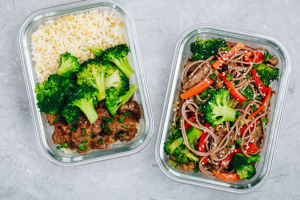
Question 6
True or false: You should avoid durian at all costs.
✅ Answer: False
Durian is high in natural sugars, but moderate amounts can fit into a healthy diet. For example, two small durian seeds have about the same sugar as one small apple or a slice of papaya. Enjoy durian in moderation — about two small seeds per sitting — and save the rest for later to avoid overeating.
✅ Wrap-Up
Healthy eating isn’t about strict rules — it’s about balance, variety, and knowing what works for your changing body. As we grow older, our nutrient needs may shift, but enjoying food can still be simple and satisfying.
Keep exploring whole foods, stay curious about what your body tolerates, and remember: small, informed choices add up to long-term health. PRIME



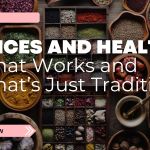
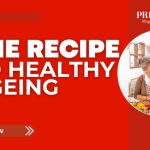


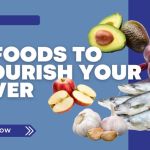
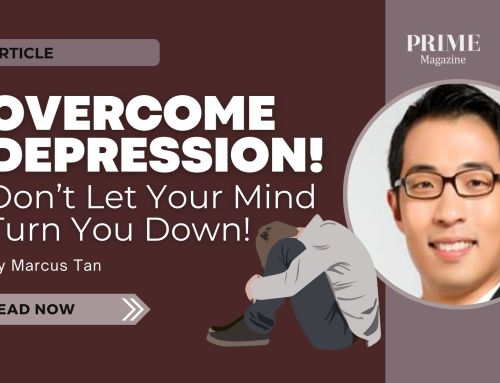



Leave A Comment